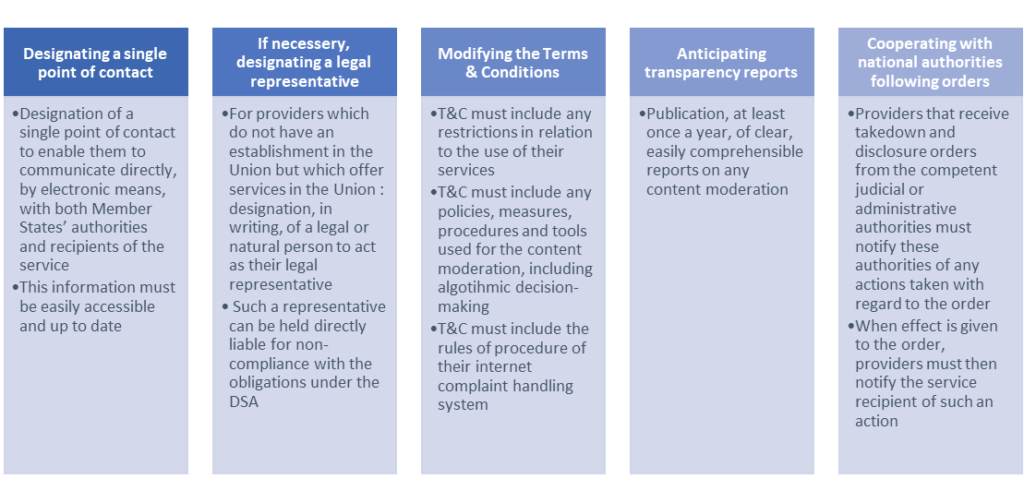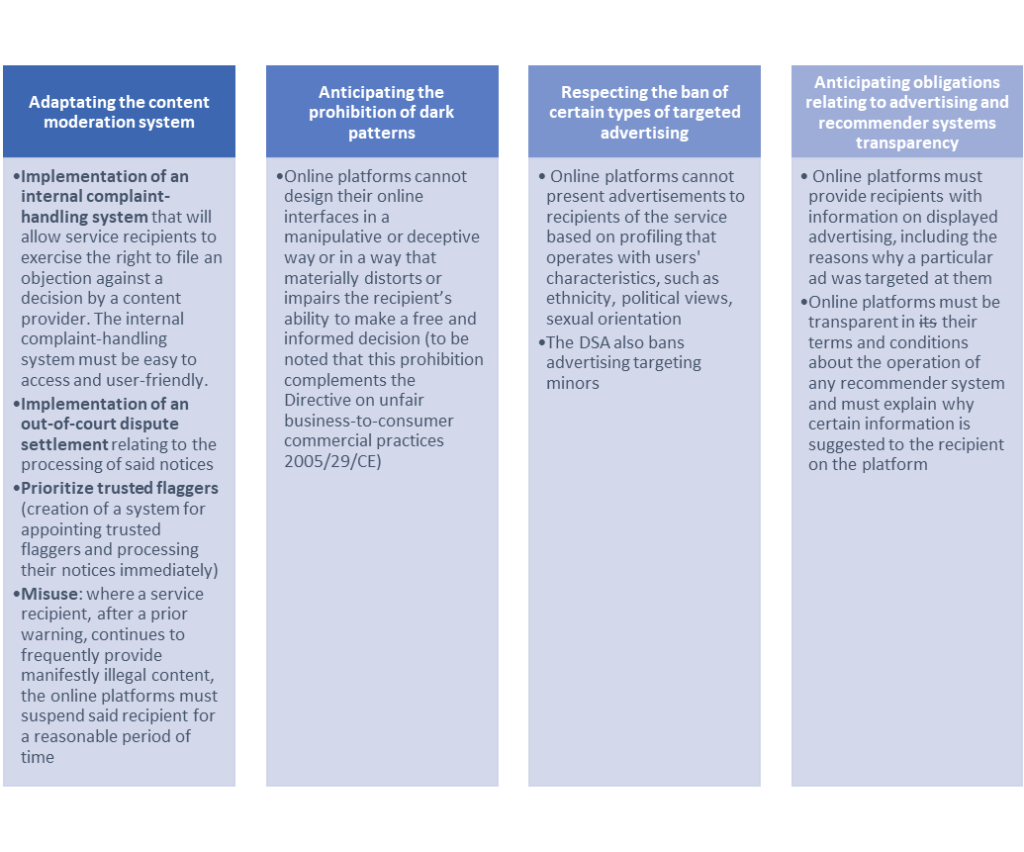THE EU DIGITAL SERVICES ACT IS NOW SIGNED INTO LAW: HOW TO APPROACH COMPLIANCE?
27 October 2022
The much-anticipated Digital Services Act appears to be the new EU regulation milestone that will impact almost all digital service providers whether or not they are established in the European Union.
While maintaining the basic tenets of the 2000 eCommerce Directive, for the first time, the DSA provides for a common set of rules applicable throughout the EU the aim of which is to significantly improve the mechanisms for the removal of illegal content and for the effective protection of users’ fundamental rights online, including the freedom of speech.
It also creates a stronger public oversight of online platforms, in particular for platforms that reach more than 10% of the EU’s population.
On October 19, 2022, EU Parliament and Council signed the Digital Services Act, pushing the online content law closer to its finalization. The DSA could be published in the Official Journal in the following weeks. It will enter into force 20 days later.
I. DOES THE DSA APPLY TO YOUR SERVICE AND WHEN?
- WHICH PROVIDERS ARE COVERED?
The DSA applies to intermediary services offered to recipients of the service that have their place of establishment or are located in the European Union (EU), whether or not the providers of those intermediary services are established on the EU territory.
- FROM WHEN?
The DSA will be applicable fifteen months from its date of entry into force or from the 1st of January 2024, whichever comes later. à With regards to very large online platforms / search engines, the DSA will apply from an earlier date, that is 4 months after their designation.
With regards to very large online platforms / search engines, the DSA will apply from an earlier date, that is 4 months after their designation.

II. A CHECKLIST THAT HELPS TO COMPLY:
- COMMON SET OF REQUIREMENTS FOR ALL INTERMEDIARY SERVICES

- OBLIGATIONS SPECIFIC TO HOSTING PROVIDERS (cumulative obligations):

- OBLIGATION SPECIFIC TO MARKETPLACES (cumulative obligations):
In addition to the above obligations, the DSA imposes new obligations on traceability of business users on online marketplaces, to help identify sellers of illegal goods:

- OBLIGATION SPECIFIC TO ONLINE PLATFORMS (cumulative obligations):

- FURTHER REQUIREMENTS APPLICABLE TO VERY LARGE PLATFORMS (cumulative obligations):
The strongest obligations laid down by the DSA concern very large platforms / search engines (i.e., those with over 45 million monthly active users in the EU and which are designated as such by the Commission):
- Obligation to conduct a risk assessment of their services and to take steps to mitigate systemic risks:

2. Obligation to commission an annual independent audit, which will yield an audit report
3. Obligation to provide at least one recommender system that is not based on profiling
4. Obligation to provide access to the data necessary to monitor their compliance with the DSA to the competent authorities and researches vetted by the authorities
5. Obligation to cooperate in the face of safety or health crises: the European Commission will be able to request an analysis of the risks posed by interfaces when a crisis emerges (such as the recent Russian attack on Ukraine) and impose emergency measures on them for a limited time
6 Obligation to designate an independent compliance officer
7. Obligations to follow other stringent transparency requirements and to publish their T&C in the official languages of all the Member States in which they offer their services
